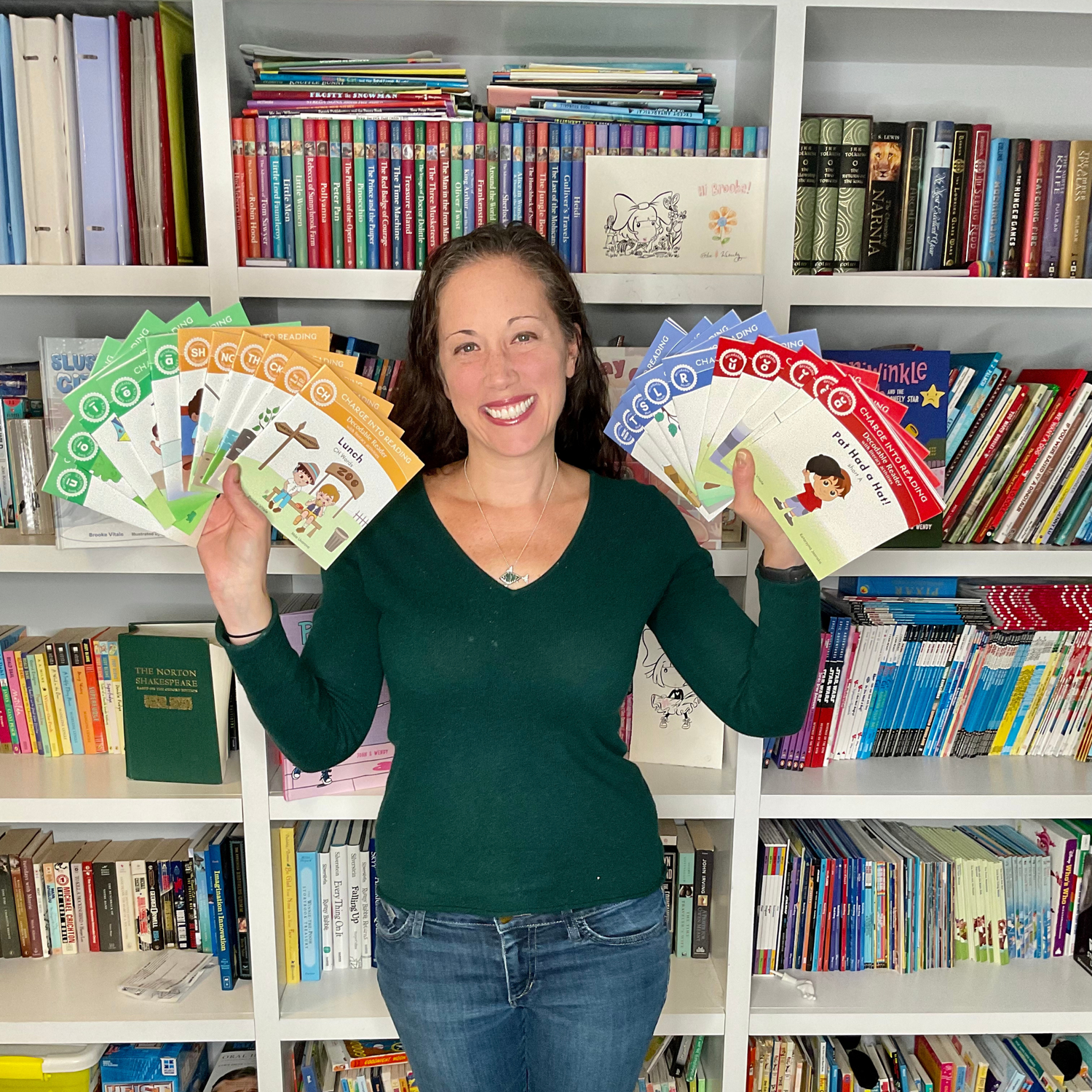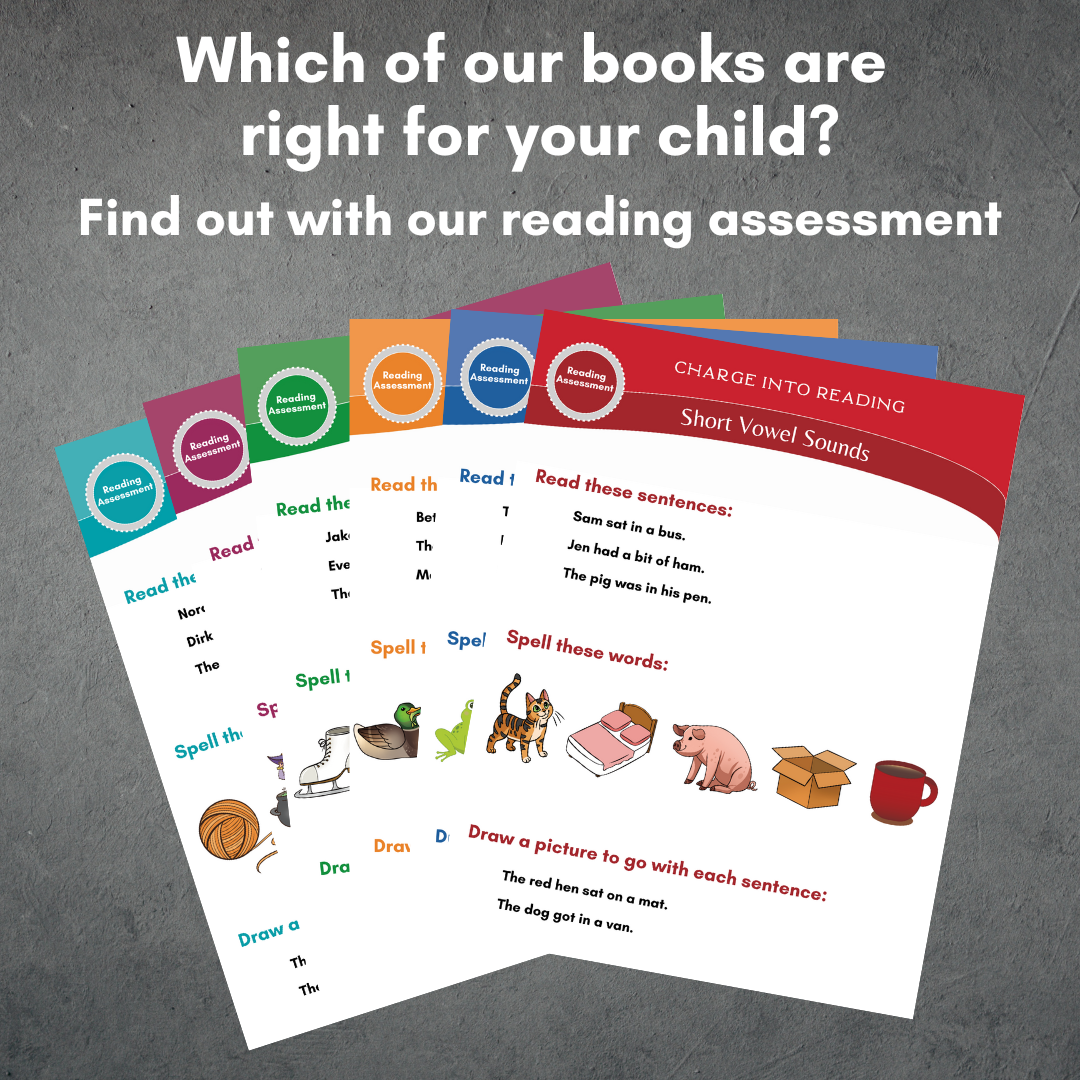Charge into Reading Decodable Readers
Not just books your child CAN read. Books your child will WANT to read.

Dear Caregiver
The word “decodable” can feel confusing and overwhelming, but it shouldn't. Decodable text simply means words your child has the ability to sound out.
That’s it! If your child can sound out a word, then the word is decodable to them.
Every child’s reading skills are different, but two things stay the same:
- children learn to read one sound or spelling pattern at a time
- children want to read books they ENJOY.
Our decodable readers strive to give you both of those things in one package.

What can your child read today?
What is decodable to one child may not be to another. Ask yourself the following questions:
- Does your child recognize uppercase and lowercase letters?
- Does your child know their letter sounds?
- Can your child blend (sound out) 2- and 3-letter words, or are they getting ready to?
We never want to sell you a book you don't need. Use our reading assessment to find the right books for your child.
What makes us different from other decodable readers?
-

The Story
Many decodable readers are light on story, but not ours. Having spent 20 years as a children’s book editor and author, I know how to tell a compelling story with a clear beginning, middle, and end. And I know how to craft a hook that will leave kids laughing.
-

New Vocabulary
One of the primary ways children learn new words is by being exposed to them in writing. Our books introduce children to new, higher-level vocabulary they can actually READ. Art and text work together to help children understand the meanings of these new words. Sample vocabulary: convene, throb, crams
-

Learning one sound at a time
Introducing a child to too many sounds or spelling patterns at one time can lead to confusion. Our books each focus on a single sound. Repetition of these sounds helps new readers gain confidence and mastery over the specific sound being taught before moving on to more complicated spelling patterns.
-

Phonemic Awareness & Comprehension
Each of our books comes with 8 pages of sound-specific literacy activities including decoding, phonemic awareness work, and spelling. These activities aid in comprehension and allow children to transition seamlessly from reading to practicing literacy skills.
-

Rich Grammar
As children move through the series, they are gradually introduced to more complicated grammar including question marks, exclamation points, dialogue tags, possessives, ellipses, and contractions, as well as more complicated sentence structure.




